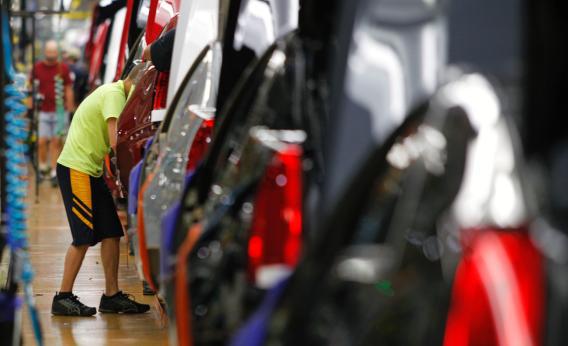General Motors’ Dan Akerson deserves an A for effort. The automaker’s chief executive and his colleagues reckon the U.S. government’s 26.5 percent ownership hurts the Motown manufacturer’s image and its ability to hire people. But it’s not the millstone they make out.
The U.S. Treasury isn’t convinced, so far, that it needs to offload its stake in the automaker, according to the Wall Street Journal. And that’s the right response. Sure, for GM to be dubbed “Government Motors” is no compliment. But the moniker is nowhere near as prevalent as it was when taxpayers saved GM from collapse in 2009. And although the automaker has made good progress since - and thanks to - the bailout, it was only three years ago. That’s less than one full product cycle, so current management aren’t yet in the clear to argue they’ve fully overcome their predecessors’ disastrous failings.
There’s potentially more to the fear from pay restrictions linked to the bailout that could hamper GM’s attempts to hire the best people. But the government can grant waivers if the company puts forward a good case. That’s not ideal from a management perspective, but it’s not an insurmountable barrier.
GM’s other shareholders also don’t seem bothered about Washington’s big stake. The company currently trades at 5.8 times the consensus estimate for next year’s earnings, according to Reuters data. That’s hardly stellar for what is now a profitable company with $33 billion of cash on hand. But most automakers are afflicted by investor doubts about the rapidity of an industry turnaround. Bailout-free Ford, for example, trades at 6.8 times 2013 estimates. GM, with lower pre-tax operating margins and less-seasoned management, deserves to trade at a discount to its big rival.
The government’s large stake may well become more of a drag once investors look more favorably on the industry as a whole. Until then, there’s nothing wrong with Akerson trying to buy back shares while he considers the stock cheap. But for Treasury Secretary Tim Geithner, selling now would lock in a $15 billion loss on his department’s overall investment. The Treasury can afford to take Akerson’s grumbles with a pinch of salt and exit on its own schedule.
The Government Keeps Its Stake in General Motors—For Now

An assembly line at General Motors.
LANSING, MI, - JULY 26: A General Motors’ worker assembles 2012 Cadillac CTS and 2013 Cadillac ATS vehicles on the assembly line at the General Motors Lansing Grand River Assembly Plant July 26, 2012 in Lansing, Michigan. The first 2013 Cadillac ATS available for retail sale rolled off the assembly line today at the plant. (photo by Bill Pugliano/Getty Images
Advertisement